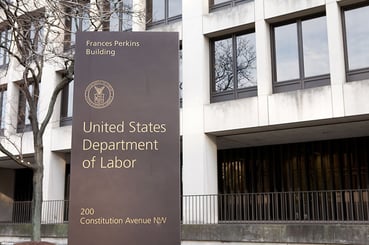 Since the Department of Labor’s Fiduciary Rule (fiduciary rule) was proposed in 2015, there have been staunch proponents and opponents. The Fiduciary Rule is a regulatory package that became applicable on June 9, 2017, making many more financial professionals fiduciaries under the Employee Retirement Income Security Act (ERISA). The fiduciary rule also subjected individual retirement accounts (IRAs) to ERISA. This sweeping regulatory package was subject to much partisan debate, several lawsuits, and a Presidential Memo which ordered the Department of Labor (DOL) to undergo rigorous review related to the rule’s impact on retirement investors.
Since the Department of Labor’s Fiduciary Rule (fiduciary rule) was proposed in 2015, there have been staunch proponents and opponents. The Fiduciary Rule is a regulatory package that became applicable on June 9, 2017, making many more financial professionals fiduciaries under the Employee Retirement Income Security Act (ERISA). The fiduciary rule also subjected individual retirement accounts (IRAs) to ERISA. This sweeping regulatory package was subject to much partisan debate, several lawsuits, and a Presidential Memo which ordered the Department of Labor (DOL) to undergo rigorous review related to the rule’s impact on retirement investors.
One of the lawsuits that challenged the DOL’s fiduciary rule is Market Synergy Group, Inc. v. United States Department of Labor, et al., No. 17-3038, which was filed in the 10th Circuit. Last Tuesday, the 10th Circuit upheld the fiduciary rule – meaning that the fiduciary rule may proceed.
Two days later, in the 5th Circuit, the court reached a different conclusion in the case of Chamber of Commerce et al. v. United States Department of Labor, et al., No. 17-10238. Here, the court said that the DOL exceeded its authority by expanding the definition of “fiduciary” beyond the statutory confines of ERISA. The court in the 5th Circuit said that Congress was aware of the distinction between a stockbroker or insurance agent (which has a lesser standard) and an investment advisor (which has a fiduciary standard) and the standard that applies to them. In short[1], the court said that Congress did not intend to the include financial salespeople in the fiduciary definition as they are understood not to be fiduciaries absent some special relationship.
So, what does this mean for the fiduciary rule?
First, the 5th Circuit holding is not effective until May 7, 2018, which means the DOL’s fiduciary rule still applies until May 7.[2]
Second, circuit splits are the perfect opportunity for the Supreme Court to hear (and settle) the issue. However, the Supreme Court is not required to hear the matter – just more likely. For the Supreme Court to hear the issue, the DOL would have to ask. Some industry commentators have suggested that the DOL will let the fiduciary rule die.
Third, the DOL could request a rehearing and if the request is granted, then the decision from the 5th Circuit will not apply until a decision by the full 5th Circuit. This could prolong the process for a long time, which would allow the DOL time to amend the fiduciary rule and continue its current review process.[3]
Fourth, the Securities and Exchange Commission (SEC) has announced that it is forging ahead with its own rule. Under Dodd-Frank, the SEC was granted authority to formulate a fiduciary rule and the SEC (with a full commission now) is moving ahead.
And, what does all of this mean for plan sponsors?
- More to come from vendors: Be on the lookout for continued communications from your vendors/recordkeepers. They will presumably continue to monitor and adapt as they move through these uncharted waters. Watch for additional information regarding how your vendor will adapt to the fiduciary rule changes. For now, the fiduciary rule still applies, but only with certainty until May 7, 2018.
- Monitor service providers: Irrespective of the fiduciary rule, plan sponsors have a duty to monitor service providers and the materials that service providers give to participants. While some believed that the fiduciary rule created this obligation, that is not the case; with or without the fiduciary rule, plan sponsors have an ongoing duty to monitor service providers, including the information, education and advice that service providers give to participants.
- Educate participants: Consider educating participants about rollovers. The fiduciary rule gave heightened protection to participants engaging in rollovers; if the fiduciary rule is eliminated in the future, you may consider educating your participants about the different types of financial professionals that may be working with your participants and how that impacts rollovers.
- Know your financial professional and document: Be aware of the type of financial professional working with your plan. Multnomah Group is a fiduciary under ERISA Section 3(21). If the fiduciary rule is eliminated in the future, some financial professionals working with retirement plans may not be fiduciaries to your plan. The plan should understand and document the type of financial professional with which it engages.
For more information on the current state of the fiduciary rule and how it may impact your plan and its participants, please contact a Multnomah Group consultant.
Notes:
[1] The court in the 2-1 decision said a lot more, which is beyond the scope of this blog post. The decision included both a majority opinion and a dissenting opinion.
[2] See Fifth Circuit Vacates Fiduciary Rule, Drinker Biddle Client Alert, March 20, 2018.
[3] See Fifth Circuit Vacates Fiduciary Rule, Drinker Biddle Client Alert, March 20, 2018.
Multnomah Group is a registered investment adviser, registered with the Securities and Exchange Commission. Any information contained herein or on Multnomah Group’s website is provided for educational purposes only and does not intend to make an offer or solicitation for the sale or purchase of any specific securities, investments, or investment strategies. Investments involve risk and, unless otherwise stated, are not guaranteed. Multnomah Group does not provide legal or tax advice.
Any views expressed herein are those of the author(s) and not necessarily those of Multnomah Group or Multnomah Group’s clients.

